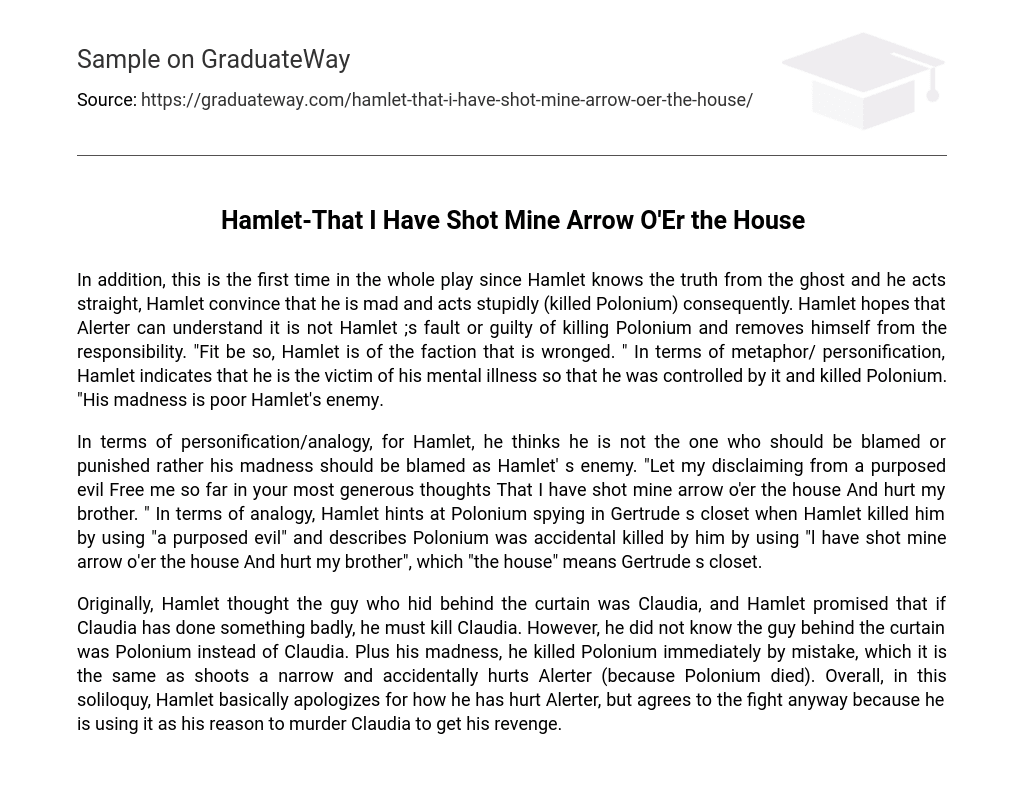Additionally, this is the first occasion in the entirety of the play where Hamlet is aware of the truth conveyed by the ghost and his subsequent actions are rational. Hamlet deliberately portrays himself as mad and behaves foolishly (such as killing Polonium) as a result. Hamlet hopes that Alerter can comprehend that he is not at fault or responsible for Polonium’s death and absolves himself of any blame. “It is fitting that Hamlet is seen as the victim in this situation.” Employing a metaphor/personification, Hamlet suggests that his mental illness has become his adversary, causing him to be controlled by it and leading to Polonium’s demise. “His madness serves as a foe to poor Hamlet.”
In terms of personification/analogy, Hamlet believes that he should not be blamed or punished, but rather his madness should be blamed as Hamlet’s enemy. He states, “Let my disclaiming from a purposed evil Free me so far in your most generous thoughts That I have shot mine arrow o’er the house And hurt my brother.” Through analogy, Hamlet implies that Polonium was spying on Gertrude’s closet when he killed him, using the phrase “a purposed evil.” Additionally, he describes Polonium’s accidental death caused by him as “I have shot mine arrow o’er the house And hurt my brother,” with “the house” referring to Gertrude’s closet.
Originally, Hamlet mistakenly believed that the person hiding behind the curtain was Claudia. Hamlet vowed to kill Claudia if he had done something wrong. However, Hamlet was unaware that the person behind the curtain was actually Polonium and not Claudia. In addition, due to his insanity, Hamlet accidentally killed Polonium, much like shooting a narrow target and inadvertently injuring Alerter (since Polonium’s death caused harm). As a whole, in this soliloquy, Hamlet acknowledges his wrongdoing towards Alerter but still proceeds with the fight. He uses this as an opportunity to exact revenge on Claudia by murdering him.





